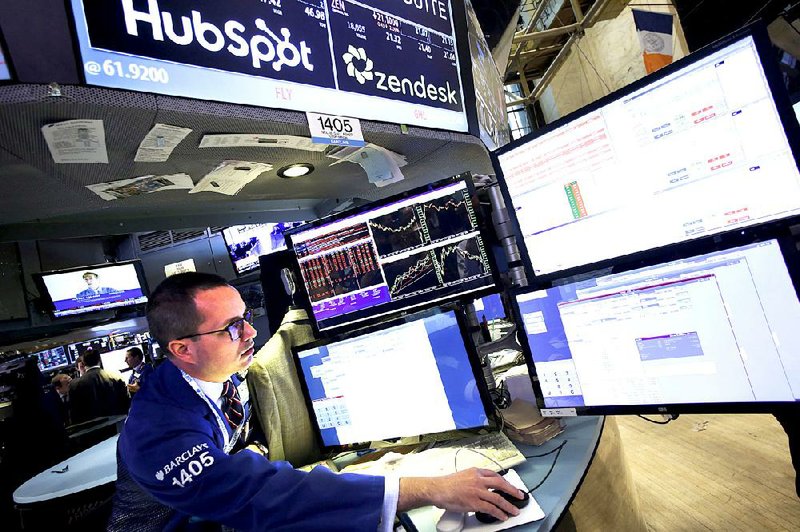NEW YORK -- Stocks in the U.S. fell broadly after drops in overseas markets as Greeks voted to reject creditors' conditions for more loans, but the losses weren't as steep as many had feared.
The Dow Jones industrial average fell 46.53 points, or 0.3 percent, to 17,683.58. The Standard and Poor's 500 index gave up 8.02 points, or 0.4 percent, to 2,068.76. The Nasdaq composite fell 17.27 points, or 0.3 percent, to 4,991.94.
With time running out for Greece to strike a new deal and its banks short of cash, a wave of selling that started in Asia early Monday spread to Europe, then the U.S. By the end of the day, nine of the 10 industry groups in the S&P 500 were down. But the index had fallen a modest 0.4 percent.
Still, many investors were nervous, putting money into gold and U.S. government bonds, assets considered safe bets in turbulent times. A rout in the stocks of oil drillers and other energy companies fed the selling as the price of oil fell nearly 8 percent.
In a Sunday referendum on creditor demands for spending cuts and tax increases in exchange for more bailout money, 61 percent of Greeks voted "no," a much higher percentage than anticipated. Some analysts attributed the lack of a sharper sell-off in stock markets to the resignation of the Greek finance minister, which might help bailout talks resume.
In Europe, Germany's DAX fell 1.5 percent while the CAC-40 in France fell 2 percent. The FTSE 100 index of leading British shares was 0.8 percent lower.
Many in the markets fear that the Greek vote has pushed the country one step closer to leaving the euro.
Oil fell $4.40 to $52.53 a barrel on worries that a slowdown in Europe from the Greek crisis will cut demand. Prices also reflected worries that Iranian crude held back by sanctions will soon hit the market as talks with the U.S. over Iran's nuclear program progress. Brent crude, a benchmark for international oils used by many U.S. refineries, fell $3.78 to close at $56.54 in London.
When the Greek government last month announced plans to hold a referendum and close the country's banks, markets plunged around the world. In the U.S., the S&P 500 fell 2.1 percent, its biggest drop since the start of the year.
On Monday, investors braced for a repeat as Asian markets opened sharply lower. By the end of their trading days, Japan's Nikkei 225 and South Korea's Kospi each dropped more than 2 percent. Hong Kong's Hang Seng sank 3.2 percent.
China bucked the trend. The country's benchmark index, the Shanghai Composite, climbed 2.4 percent after regulators and the securities industry intervened to prop up prices that had been falling in recent weeks.
Among U.S. stocks making big moves, Aetna sank $8.08 to $117.43, a 6.4 percent loss. That was the biggest slide in the S&P 500. The company agreed last week to buy rival health insurer Humana for $35 billion.
Bond prices rose. The yield on the 10-year Treasury note fell to 2.29 percent from 2.39 percent late Thursday. U.S. markets were closed Friday for Independence Day.
Information for this article was contributed by Pan Pylas of The Associated Press.
Business on 07/07/2015

